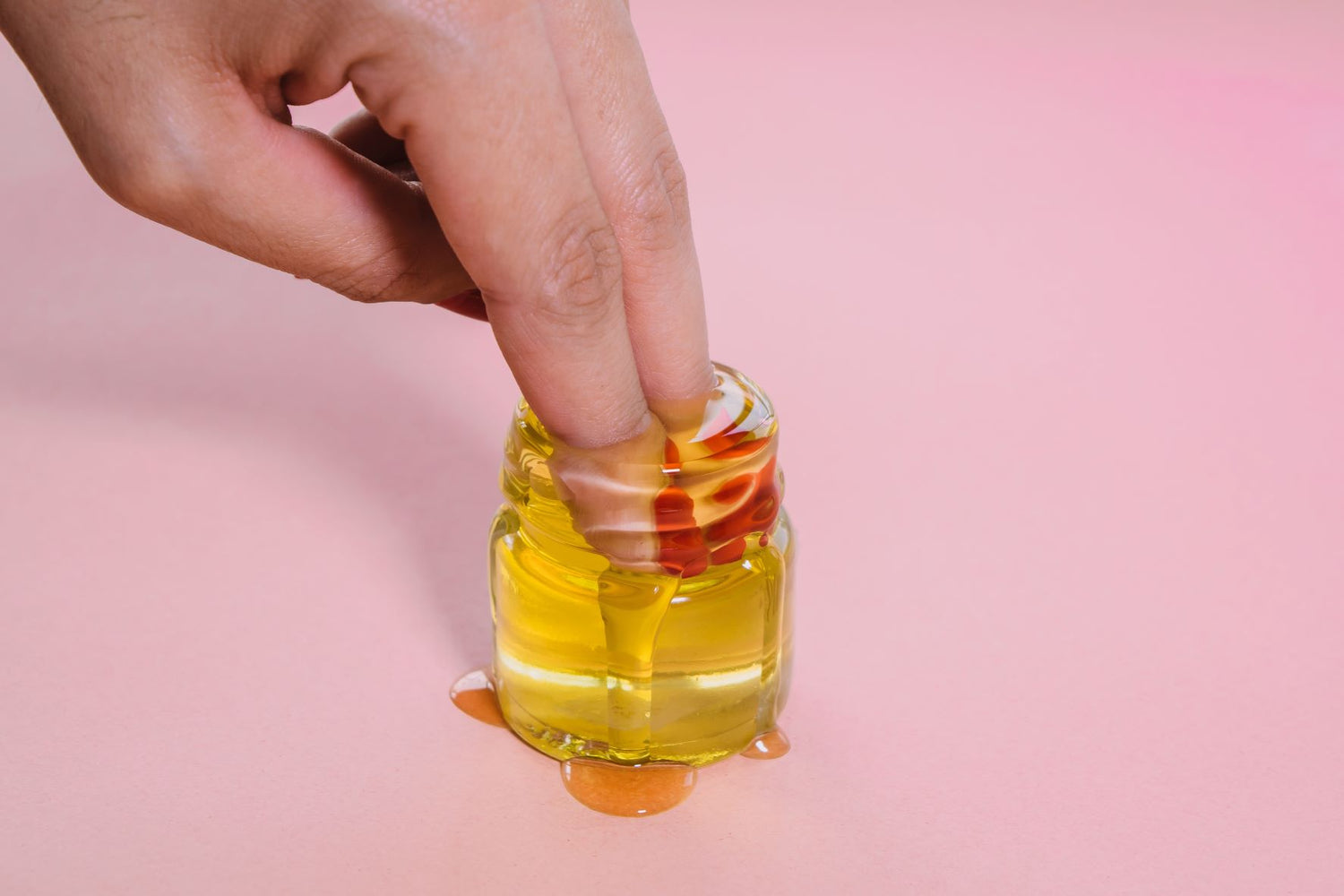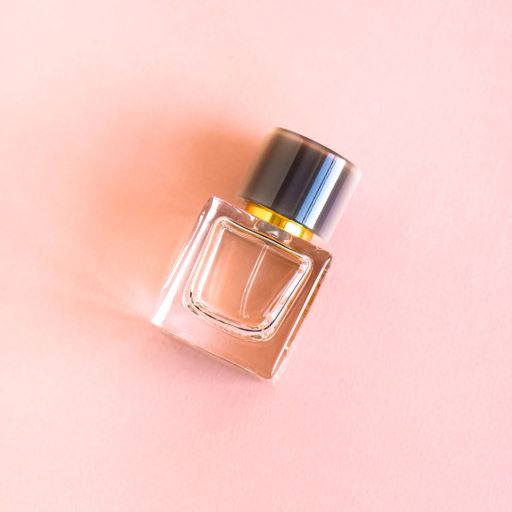
Satisfied sex life despite orgasm gap? Why women can expect more
Share
I recently went to the Zugspitze with my husband and children. We took the gondola, which only takes 10 minutes for the almost 3000 meters "The superlative cable car", as it is called by resourceful tourism marketing people.
Now I have to mention that I am insanely afraid of heights but ventured into this suspended death trap for my son. My husband, on the other hand, has no problem with the height and was completely brainwashed by all the promo videos of the construction of the gondola.
So we had very different expectations of this gondola ride: I just hoped that we would make it to the top alive, ideally without falling into a state of anxiety because I didn't have access to suitable psychotropic drugs. My husband on the other hand wanted to enjoy the view, the "comfort" (sorry dear Bayerische Zugspitzbahn Bergbahn AG but I can't write it without quotes) and the engineering marvel that this cable car is. The attentive reader will already notice that my expectations were much easier to meet because they were very low. So I highly recommend the gondola.
Our satisfaction is directly linked to our expectations. It's a question of which points we need to be able to check off for ourselves in order to speak of a successful experience. We are asked about our satisfaction so often that we are often no longer aware of the expectations or criteria we use to evaluate things: our food in the restaurant, the accommodation, the book, the shopping experience. We constantly evaluate and everyone always wants us to be as satisfied as possible. But what about our sex life? How happy are we with that? And what does all this have to do with our expectations?
How satisfied are we with our sex life?
The question of how satisfied we are with our sex life is not only important for us personally, but also for others. In research, for example, it plays a role, since sexual satisfaction is also becoming increasingly important for indicators such as quality of life. The question can also play a role in medicine, for example if you have had an operation or treatment for a sexual dysfunction. Here the question is important to determine the success of the operation and the progress of recovery.
A quick internet search reveals the Sexreport 2022 of the Germans. This is not a scientific study, but shows already known results: "the majority were satisfied (school grade 2; women: 24.34 percent; men: 25.57 percent), followed by satisfactory (women: 19.95 percent; men 23.33 percent)". This means that almost half of women* and men* are reasonably satisfied with their sex life and men* are somewhat happier than women*. The report also shows: "One fifth of those surveyed (women: 19.88 percent; men: 18.29 percent) are dissatisfied with their current sex life". So there is definitely room for improvement in German bedrooms.
But what really surprised me was the small difference between men* and women*. Anyway come Women* orgasm a third less often - the so-called "orgasm gap". In numbers, 95% of men* orgasm always or often during sex and only 65% of women*. Now, an orgasm is certainly not the unique selling point of satisfying sex, but let's be honest ladies*, we buy vibrators to get orgasms and we don't just stop when it seems like he's had fun . So why do we settle for less when it comes to sex with a partner*?
Interestingly, we only do this when we have sex with men*, with same-sex sex the orgasm gap disappears. Boom! Mic drop! Here I pause dramatically to allow you to process this information. Because that would mean that the myth that women* just find it harder to reach an orgasm and that you don't even have to try it, or only have to do half-hearted foreplay, is not true at all. So how do the numbers above come about? Or in other words:
What does satisfied actually mean?
As you can see from the example of my gondola ride, satisfaction is always linked to the question: "What did you expect?". And the reason why this question is so important to our sexual satisfaction is that it assesses what a person's expectations are for their sex life and, by extension, what they believe they deserve.
And these expectations don't just pop up one day, like an unwelcome pimple in the middle of your nose, they develop from an early age and are strongly influenced by what is communicated to us about sex and sexuality and what we experience.
In this way, the expectations also become a bit social and political. We internalize beliefs and what society expects of us. These can be harmful, such as the myth that it is normal for women* for the first penetrative intercourse to hurt. So it shouldn't come as a surprise that there are clear differences between the sexes when it comes to expectations.
And the wonderful concept of "intimate justice" (literally: intimate justice) was developed precisely for this assumption that our expectations are also influenced by society in our intimate life.
Sara McClelland from the University of Michigan wanted to focus on how political and social injustices play out in our sex lives. Also how individuals behave because of what they think about their sex life and how they evaluate it. Justice because it is also about who is entitled to have certain sexual experiences and also who is entitled to enjoy or enjoy them. Like Peggy Orenstein in her Brilliant Ted Talk finds that young women*, for example, feel entitled to have sex, but not necessarily to enjoy it.
If we now look at the data on sex expectations, the following picture emerges: the expectations of girls*/women* are significantly lower than those of boys*/men*. That also applies negative expectations of sex, e.g. defining what constitutes a less than satisfactory sexual experience. Here, young men* reported less attractive sexual partners, feelings of loneliness or insufficient sexual stimulation. Young women*, on the other hand, used words like "sad", "depressing", "pain" and "degrading". This also shows that young women* expected painful and/or negative consequences for themselves in the worst case, which young men* did not even think of. The fact that sex can be painful for women* probably happens more often than you think, a British study shows that 1 in 13 women* is affected.
Young women* also use their partner's satisfaction as a measure of their own satisfaction, while young men* use their own orgasm for this. All of this adds up to a picture in which young women* define their satisfaction, the absence of pain, the desire to feel close to their partner and his or her orgasm as criteria. Those are about as high expectations as I had on the gondola ride. But shouldn't we want more for our own sexual fulfilment, shouldn't we be able to expect more? actually show studies namely also that women* have more fun with sex if they practice it more self-determinedly. So what's stopping us?
The shame of the female sex
The female* gender and our relationship to it, especially as women*, also play a role in what expectations we have of our sex life. First to the scientific facts: the researcher Debra Herbenick found that the female genital self-image (and yes, a questionnaire was developed for this, scientists are just funny) in connection with the female sexual function (this includes sexual desire, sexual arousal and orgasms), women's sexual behavior and self-care of their genitals. So in plain language, the better the attitude towards their own genitals in women*, the more positive it will be for their sex life and their sexuality.
The fact that this relationship between women* and their genitals has been disturbed for a long time and could benefit from therapy is well known, but many women* are certainly not aware of it. At this point I can recommend the impressive play "The Vagina Monologues" or "The Vagina Monologues" by Eve Ensler. She asked over 200 women about their vaginas and made the sobering conclusion that women* at best keep a polite distance from their vaginas, at worst they feel shame or disgust or pretend they don't exist. This is one of the reasons why oral sex is often one-way and Women* reject this out of shame about their own gender.
Eve Ensler and Peggy Orenstein also share responsibility for the silence surrounding the female gender. This starts in childhood, where the part between the navel and the knees is simply skipped or just called "down there" or gets disturbing pet names, trivializations or other things. I recommend a short research expedition to the kindergarten here to collect sufficient evidence.
And this carries over into sex ed classes at school, where the vulva or the clitoris is rarely mentioned. If you think back, all you learn is "that boys* have penises and erections and girls* have periods and unwanted pregnancies" (Peggy Orenstein). Not talking about something and not naming it is the best way to erase it from public perception (see also our article on Klitoris).
And so girls* and young women* hardly know anything about their own bodies. Which may also explain why less than half of 14-17 year old girls* have ever masturbated at all. And then they should suddenly know what they want from a partner? What they don't want? What do you like? And what makes them happy? Unfortunately, this is not very realistic. By the way, if you haven't given much thought to your own vulva up to now, I recommend a look in the mirror to get to know it for the first time. Maybe it will be your new BFF.
But maybe it's just a Lord Voldemort situation after all, and the vulva is "that-whose-name-must-not-be-named" and not out of shame, but out of fear of her power. At least there is enough for that cultural historical evidence. And if we think about it, maybe nothing is more scary than sexually empowered women* who know what they want and won't settle for less. So let's say it together, louder and louder: "Viva la Vulva!". And if you want to do something about the orgasm gap and for yourself, just click here.













